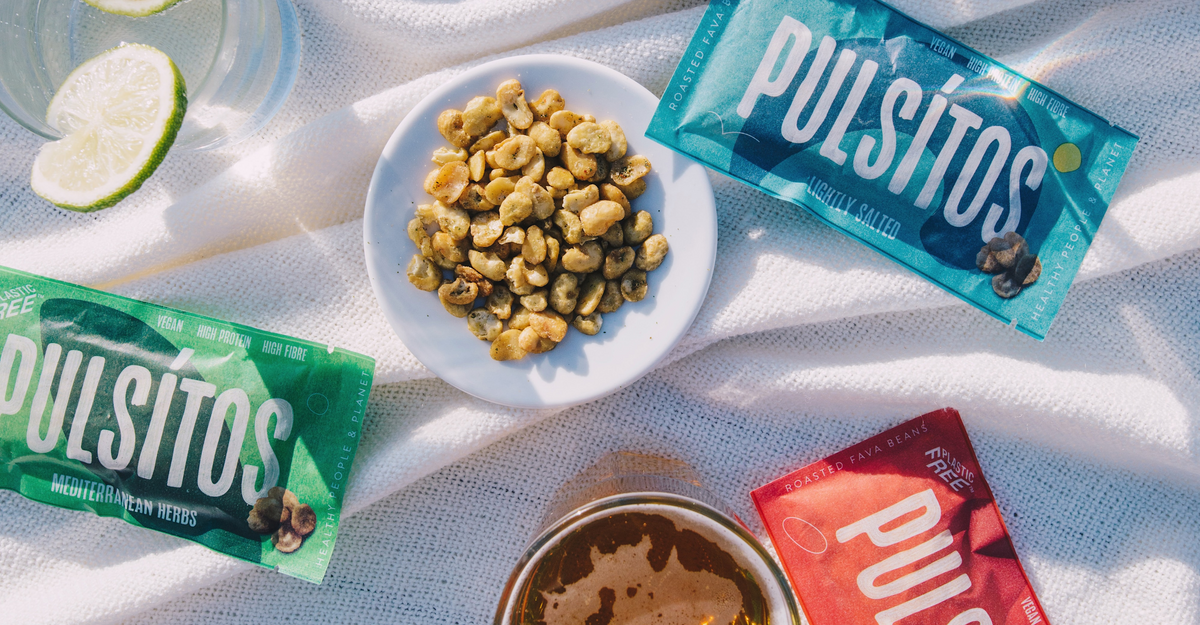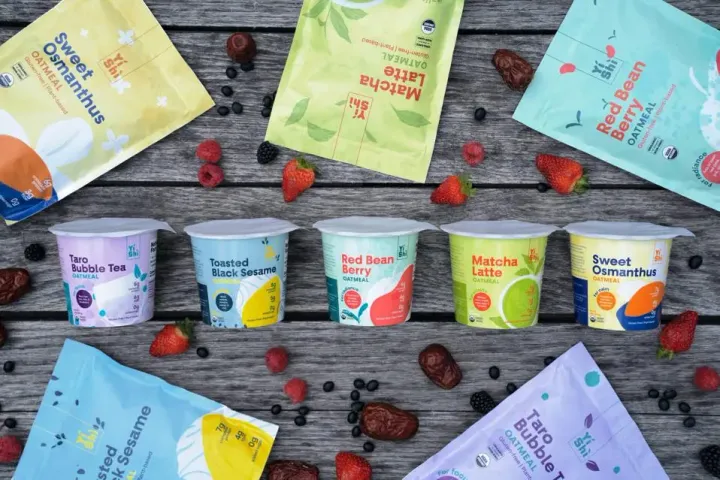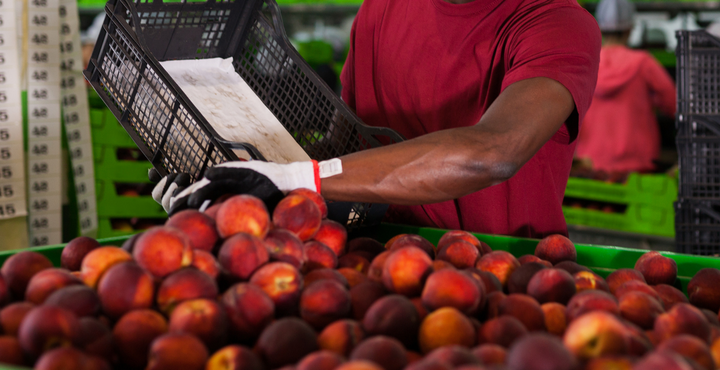Selling on Trust: Growing Your Shopify Food & Beverage Store Using Traceability as a Strategic Tool
Meet compliance and drive growth with affordable industry-standard traceability.

Trust, transparency, and traceability are all connected and vital for building and maintaining relationships.
- Trust is the foundation of any relationship. It means that you believe in someone or something's honesty, reliability, and sincerity.
- Transparency is being open and honest. It helps to foster trust by allowing people to make informed decisions.
- Traceability is the ability to track something through a process. It supports trust and transparency by letting people see where something came from and how it got to where it is now.
Trust is a powerful human emotion. When people develop a trusted relationship, a key attribute is openness. That's why trust is so important for building a strong brand and maintaining customer loyalty.
In business, traceability is what makes trust and transparency possible. By tracking items through a verifiable audit trail, businesses can demonstrate transparency and build trust with their customers.
For the food and beverage industry, trust, transparency, and traceability are critical for ensuring food safety and quality. Consumers expect their food to be safe and of high quality, and traceability enables businesses to track the movement of food through the supply chain, identify issues, and take action quickly.
Here, you'll learn how to use traceability as a strategic tool to grow your Shopify food and beverage business.
Traceability in the food & beverage industry
What we eat directly relates to our health. Quite literally, ‘you are what you eat,’ so, for health-conscious consumers, making healthier dietary choices is an important lifestyle consideration.
However, when it comes to trust and transparency, it isn’t just a question of the nutritional content of food. Consumers also need to avoid food products that contain known allergens, as well as constituents or additives that they do not wish to eat.
Ultimately, food labeling is a crucial component of food safety and consumer protection. It should provide shoppers with complete information about the contents of the food they purchase, including the ingredients, nutritional value, potential allergens, unhealthy additives, production information, and 'use-by' or 'best-before' dates.
- Nutrition - Many people are concerned about the nutritional value of the foods they consume, and they rely on food labeling to make informed decisions about what and how much to eat. Misleading or inaccurate labeling can result in consumers unknowingly consuming unhealthy or potentially harmful ingredients, such as excessive amounts of sodium or sugar.
- Allergens - Accurate and trustworthy food labeling is particularly important for individuals with food allergies or intolerances. For them, even small amounts of certain ingredients can be life-threatening. Accurate labeling helps people avoid potentially harmful foods and reduces the risk of severe reactions.
- Additives - Many unhealthy additives and preservatives are commonly used in food processing to extend shelf life and enhance flavor, texture, or appearance. Consumers have the right to know what they are consuming and to be made aware of the presence of any harmful additives that could negatively impact their health.
- Production - For many consumers, how our food is produced has become an increasingly important consideration. Animal welfare, farming methods, the use of pesticides, organic certification, and concerns about the environmental impacts of food production all contribute to the wider complexities of traceability in the food industry.
Consequently, across these health and ethical factors, there has to be absolute trust that a product is labeled correctly. Accurate and trustworthy food labeling ensures consumers are correctly informed about the food they purchase and consume.
Trusted food labeling helps protect the health and safety of those with allergies and intolerances, and it enables all consumers to make informed decisions about their diet and nutritional intake, and the wider issues that are associated with food production.
Building consumer trust with traceability
Traceability is essential for building consumer trust in the food and beverage industry. By providing trusted information on allergies, nutrition, additives, and production, companies can address concerns and alleviate anxieties that consumers may have.
- Transparency - Traceability provides transparency into the origin and quality of products. By providing clear and accurate information, consumers can make informed decisions about the products they purchase.
- Food safety - Traceability helps identify and contain food safety issues, such as contamination or adulteration, and quickly remove affected products from the market, providing confidence in the safety of the food supply.
- Quality assurance - Traceability ensures consistent quality in products by allowing companies to track and verify the source and production processes of their ingredients. This can lead to higher-quality products, which can build consumer trust and loyalty.
- Sustainability - Traceability helps companies demonstrate their commitment to sustainability by providing information about the environmental and social impacts of their products. This supports brands by building consumer trust and preference for products from companies that prioritize sustainability.
Food safety issues and reputational damage
Trust is a pillar on which the good reputation of a company or brand stands. The reputational damage that may arise from food safety issues sometimes poses an existential threat. Here are some well-known examples:
- Example 1: Peanut butter - In 2011, a salmonella outbreak linked to peanut butter products made by the company Peanut Corporation of America made over 700 people ill and killed nine. The outbreak caused a major recall of peanut butter products and led to the company's bankruptcy.
- Example 2: Romaine lettuce - In 2015, an E. coli outbreak linked to romaine lettuce made more than 200 people ill and killed five. The outbreak caused a major recall of romaine lettuce and led to a decline in consumer confidence in the product.
- Example 3: Cantaloupes - In 2018, a listeria outbreak linked to cantaloupes grown in Colorado made over 140 people ill and killed 33. The outbreak caused a major recall of cantaloupes and led to a decline in consumer confidence in the product.
It is unlikely that we will ever entirely eliminate the risk from instances of foodborne illness. It is, however, within the reach of every business in the food supply chain to adopt traceability that minimizes the impact of such events once they become apparent.
Regulatory requirements - the FSMA and the Final Rule
In the United States, the Food and Drug Administration (FDA) Food Safety Modernization Act (FSMA) is designed to prevent food-related safety issues. Many other countries have implemented similar legislative instruments that largely harmonize the effort internationally.
The FSMA was enacted in 2011 and is intended to improve the safety of the food supply in America by shifting the focus to the prevention of foodborne illnesses, rather than reacting after the event.
Most recently, the FSMA has implemented the Final Rule. This was developed through a public process that lasted for several years. The final rule is based on the best available science and the input of stakeholders from all sectors of the food industry.
The FSMA Final Rule makes key provisions that enshrine compliance in law, including:
- Preventative controls - Food companies must develop and implement preventative controls to identify and control hazards that could cause foodborne illness
- Food safety plans - Food companies must develop and implement food safety plans that document their preventative controls.
- Traceability - Food companies must be able to trace their food products from farm to fork.
- Inspection - The FDA will increase its inspections of food facilities.
- Civil penalties - The FDA will be able to impose civil penalties for violations of FSMA.
- Criminal penalties - The FDA will be able to bring criminal charges for willful and knowing violations of FSMA.
Using traceability to grow your Shopify food and beverage store
In the supply chain for food, the main types of business may be classified as growers and suppliers, manufacturers and processors, distributors and wholesalers, or as retailers and food service providers.
The larger-scale companies among them have adopted and enjoyed the benefits of ‘enterprise-grade’ traceability. They have had the budgets to support the use of high-cost application software or to develop custom solutions to support traceability.
This has been a value differentiator, enabling these companies and their brands to thrive by creating greater trust in their products and services. This industry-standard traceability is now affordable and easy for smaller food & beverage sellers on Shopify to implement.
Using traceability to demonstrate transparency and win trust for a Shopify food and beverage store brand provides excellent strategic benefits, including:
- Better Customer Experience (CX) - Providing customers with more information about their food, such as origin, production, and transportation helps customers to make more informed decisions about what they eat.
- Increased customer satisfaction - Better CX increases satisfaction and boosts social approval ratings. This pays off in the shape of greater customer loyalty, helping to boost repeat and complementary product sales, as well as attracting new customers.
- Improving food safety - Tracking the movement of food through the supply chain simplifies the identification of potential food safety hazards, allows faster compliance with the FDA, and allows the rapid recall of products from customers to prevent the spread of foodborne illnesses.
- Reducing costs - Tracking food inventory to move SKUs through the supply chain in accordance with 'use-by' or 'best-before' dates reduces costs by preventing the need to dispose of food that has spoiled, as well as making sure that out-of-date food is not shipped to customers.
In short, these benefits arising from traceability equate to competitive advantage. Traceability is a valuable strategic tool that helps Shopify food and beverage store brands to improve their business in a number of ways.
By accurately tracking the movement of food through the supply chain, Shopify food and beverage store brands improve food safety, reduce costs, increase sales, and enhance customer loyalty, all of which underpin growth and increased profitability.
Implementing traceability in your Shopify food and beverage store
As an e-commerce platform, Shopify brings together many features that are essential for enabling stores to successfully trade in just about any type of product. This includes Inventory Management (IM) suitable for small and medium-sized businesses.
Shopify offers a number of Inventory Management features that help businesses to track their SKUs, manage their stock ordering, and fulfill their customer orders. However, Shopify does not include traceability amongst its features out of the box. To obtain traceability functionality it is necessary to use a third-party software tool.
Choosing the right traceability solution
Selecting the appropriate traceability solution for your Shopify food and beverage store is crucial. There are three primary third-party traceability tools that work with Shopify:
- Utilizing a traceability app as a Shopify add-on
- Integrating an Enterprise Resource Planning (ERP) system
- Implementing a standalone traceability solution
Traceability apps like Freshly Inventory are typically easy to install and use. They are designed to simply plug and play with Shopify, without the need for a major IT project. They tend to have a lower cost than ERP systems, with some offering freemium plans that allow certain levels of functionality without any costs at all. Additionally, these apps enable faster implementation, allowing businesses to start using traceability features sooner.
On the other hand, integrating an ERP system offers a wider range of features and functionality than apps, add-ons, and plugins. It’s a good option for large businesses that may need more than Shopify provides at scale and need to integrate with other systems. ERP systems offer centralized management of multiple business processes, including traceability, inventory, accounting, and more. However, they can be complex to implement and set up, often requiring a major IT and change management project. ERP platforms tend to have high recurring costs as well as integration and setup charges.
Lastly, standalone traceability solutions offer highly specialized features and functionality designed to address traceability challenges. They may integrate better with existing traceability hardware or software, such as barcode scanners or IoT devices. However, these solutions may require additional resources to manage and maintain, as they operate separately from other systems. Integration with other business processes might not be as seamless as with an ERP system.
When evaluating these options, consider your business size, specific traceability requirements, and available resources to determine the best solution for your Shopify food and beverage store.
Attaining Enterprise-Level Traceability for Growing Businesses
Freshly Inventory empowers small and growing Shopify food & beverage stores with the same enterprise-level traceability that large businesses in the food supply chain have leveraged for years. As an easy-to-integrate app for your Shopify store, Freshly Inventory simplifies the process of meeting compliance requirements for FSMA Rule 204, also known as the Food Traceability Final Rule.
Freshly extends its benefits not only to food manufacturers but also to distributors, wholesalers, retailers, and food service providers who sell products using Shopify. By providing comprehensive traceability capabilities, Freshly Inventory ensures that your growing business stays ahead in the competitive food and beverage industry, meeting regulatory standards while enhancing supply chain efficiency.
Leveraging Freshly Inventory's Benefits to Align with FSMA Requirements
Freshly Inventory offers numerous advantages that seamlessly align with the FSMA requirements, enhancing your food & beverage business operations:
- Streamlined record-keeping: Freshly maintains comprehensive and easily accessible traceability records, including details such as batch name and number, invoice number, received date, barcode, description, quantity, and expiry date for each product.
- Effortless tracking and tracing: The app provides seamless batch and expiry date tracking features, allowing businesses to trace high-risk foods from production to consumption and meet FSMA's supply chain traceability requirements.
- Automated stock rotation: Employing stock rotation methods like FEFO (First Expiry, First Out) or FIFO (First In, First Out), Freshly minimizes the risk of spoilage and potential food safety issues.
- Optimized inventory management: With demand forecasting and automatic discounting capabilities, Freshly helps businesses efficiently manage their perishable inventory, reduce waste, and ensure compliance with food safety standards.
- Enhanced transparency: Allows businesses to optionally display expiry dates on product pages, fostering transparency and building trust with consumers.
- Improved documentation and shipping processes: Freshly streamlines the shipping process by enabling businesses to bulk print and edit packing slips with batch details, ensuring accurate traceability information is included in the documentation.
Get affordable industry-standard traceability with Freshly Inventory
In the world of food and beverage, trust and transparency are crucial elements that foster strong consumer relationships. Traceability within the food supply chain bolsters this trust by offering vital information about ingredients, nutrition, allergens, additives, and production processes.
The FSMA Final Rule sets clear traceability compliance standards for all participants in the food supply chain. For years, larger companies with substantial resources have utilized traceability as a unique value proposition. Now, with Freshly Inventory, even smaller, growing Shopify food & beverage stores can enjoy the benefits of enterprise-grade, industry-standard traceability at an affordable price.
Freshly Inventory is not only cost-effective but also easy to integrate and simple to use. Experience the difference that traceability can make in your business by installing Freshly Inventory today.


